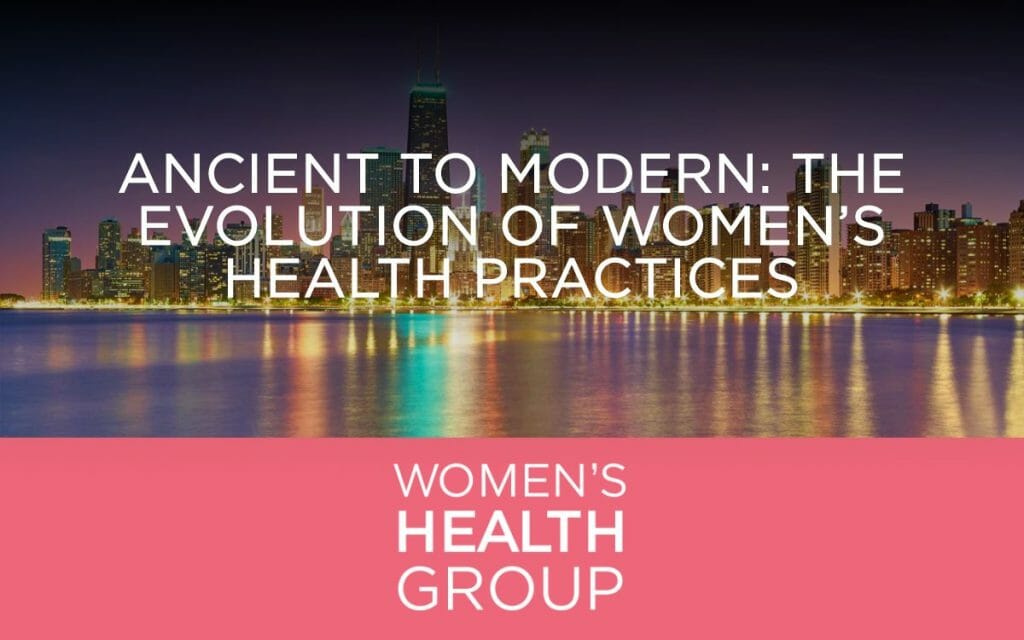The Dawn of Women’s Health Practices
Wrapping her in the winds of history, the evolution of women’s health practices traces back to our ancient civilizations. From the dawn of humanity, women have been elemental figures embodying the paradox of life and death. As the primary caregivers, women, were beacons of health, wellness, and healing themselves, often plagued with enormous challenges. Repeatedly facing risks during childbirth and child-rearing, often succumbing to the dangers themselves, ancient females intuitively understood their body’s needs.
Understandingly, the earliest health practices for women seem rudimentary by today’s standards. They centered around fertility, reproduction, and childbirth. For example, ancient Egyptian papyrus scripts, approximately dated back to 1800 BCE, provide evidence for concoctions used as contraceptives and even for inducing labor. Women carried immense tribal knowledge, passing it from generation to generation.
Heightening Sophistication in Ancient Civilizations
As civilizations evolved, so did their understanding of women’s health. In ancient Greece, the Hippocratic texts elaborated the idea of ‘hysteria,’ balanced humors and temperaments. Though these notions were misconceptualized and often fallacious, they laid the foundation for gynecology.
Meanwhile, in the Indian subcontinent, during the era of flourishing Ayurvedic texts, the female health issues, particularly reproductive ones, got a more holistic approach. These ancient texts emphasize not just physical but also emotional and spiritual health, encapsulating the premise that a woman’s health affects the entire society’s well-being.
The Advent of Modern Gynecology
The evolution of women’s health practices took a significant turn during the 19th century. The birth of modern gynecology and obstetrics paved the way for a scientific understanding of women’s bodies and their health. However, this era was riddled with non-consensual practices on enslaved women, withholding the necessary anesthesia during invasive procedures. This reprehensible chapter in history is instrumental in reminding us of the indispensable value of consent and ethics in modern practice.
Birth of Female Empowerment and Holistic Health
Advancements in medical sciences during the 20th century were staggering. In addition to managing pregnancy and childbirth more safely, the attention shifted to preventing diseases and promoting overall health. Menstrual health, contraception, and breast cancer awareness began garnering attention.
Women started having the autonomy of their bodies. With the birth control pill’s introduction in the 1960s, women exercised control over their reproductive choices. The feminist health movement furthered the dialogue about a woman’s right to her body and health choices.
Contemporary Viewpoint and Future Trends
The advent of the 21st century witnessed an even more comprehensive approach towards women’s health evolution. Overarching the realm of reproduction, it branched out to address various female-specific health issues: cervical and ovarian cancers, menopause, mental health stressors, osteoporosis, and heart diseases. The interplay of gender and health has been recognized, highlighting the need for gender-specific research and solutions.
The role of digitalization in the realm of female health cannot be undermined. The rise of women-specific health apps, telemedicine, IoT-enabled devices, AI, and data analytics have paved the way for personalized healthcare. The growth trajectory of femtech, estimated to reach $50 billion by 2025, is an endorsement of the shifting global trends.
Click to delve deeper into the topic at the Mayo Clinic’s information on Women’s Health Evolution.
Women’s Health Evolution: Strengthening the Continuity of Care
Despite remarkable leaps in the domain, disparities and inequities in women’s healthcare persist. Accessibility to healthcare services, especially for women in marginalized communities, remains a problematic area.
The comprehensive care model brings immense promising potential, emphasizing preventive care, regular screenings, and regular health check-ups. The longevity and quality of women’s lives can radically improve by prioritizing consistent care from adolescence to menopause and beyond.
A paradigm shift in women’s healthcare approach includes a systemic focus on mental health. The psycho-emotional wellbeing of women plays a pivotal role in their overall health. Anxiety, depression, hormonal imbalances, postpartum mood disorders all warrant prompt attention and management.
Check more on this topic at the women’s health resource.
Securing the Future of Women’s Health
The road that women’s health evolution has trodden is interspersed with challenges, resilience, and continuing growth. With several achievements, the journey attests that we have come a long way from the ancient human civilizations. Yet, the road ahead is still a long one.
Empowering women to make informed decisions about their health, bridging the healthcare accessibility gap, fostering research in women’s health, leveraging technology for personalized solutions are some key areas of work. The sanctity of women’s health is crucial not just for them but for the future health of our communities and societies.
Each stride in this journey of women’s health evolution? Each discovery, each revelation? It fortifies the commitment to secure the highest possible level of health for every woman. For, as goes the ancient Chinese proverb, “Women hold up half the sky.” Let’s ensure that this half is healthy and strong.




